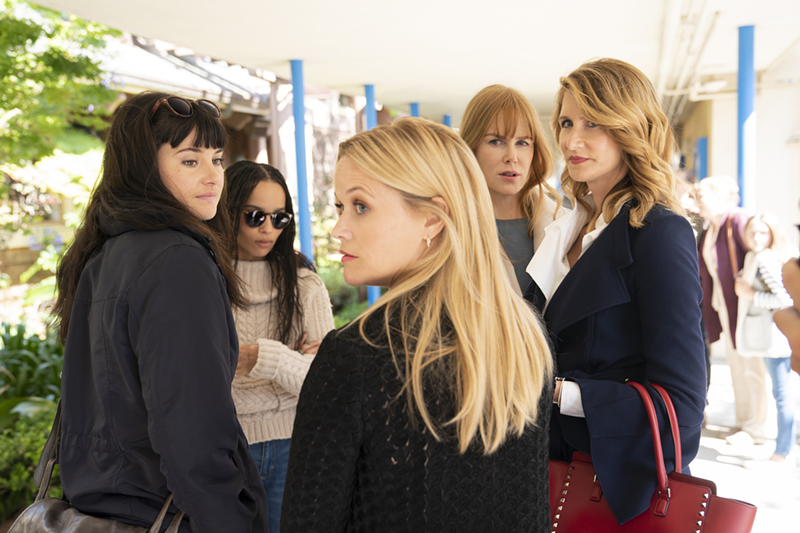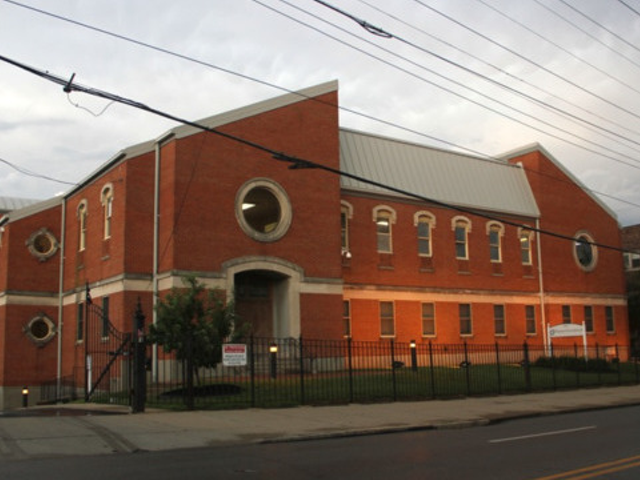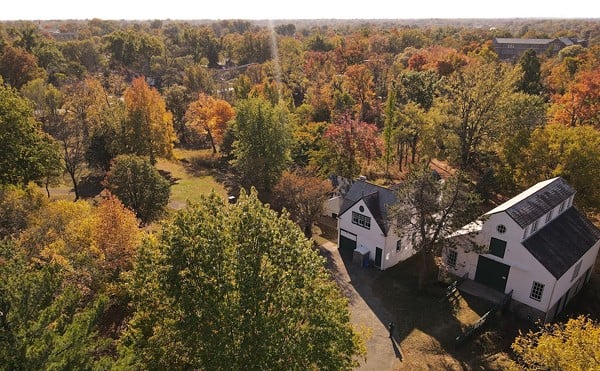
Big Little Lies (Seasons 1-2 available on HBO GO and HBO NOW) was one of the top shows of 2017. Based on Liane Moriarty’s bestselling novel, the miniseries represented a true girl-power moment not just because of the powerhouse cast of actresses, including Nicole Kidman, Reese Witherspoon and Laura Dern, but because it was made possible by Witherspoon’s and Kidman’s production companies. Originally pegged as a miniseries, Big Little Lies had it all: a compelling murder mystery, Real Housewives-esque upper-crust bitchery and phenomenal acting. At its core it was an examination of relationships — between women, spouses, exes, families. Unfortunately the recent second season failed to capture that with a similar zest.
The problems with the second season began at its inception. Simply put, there was no reason for it other than to appease hungry fans. Lies was intended to be a one-and-done, hence its categorization as a miniseries. The finale revealed that it was Perry (Alexander Skarsgård) who died when Bonnie (Zoë Kravitz) pushed him to break up a dangerous confrontation. Intent on protecting Bonnie, the women claimed he slipped on a step and fell to his death. It was a satisfying reveal with just enough dangling questions to keep viewers thinking after the finale — that’s what good art and entertainment do.
So I was dubious about a second season, even with the addition of Meryl Streep as Perry’s mother, who moves to Monterey, California to help widowed daughter-in-law Celeste (Kidman) with her demonic twin sons (sorry, they’re scary). In actuality, she comes to look into the true circumstances of her son’s suspicious death; Celeste’s ability to parent; and Jane’s (Shailene Woodley) assertion that Perry is her son Ziggy’s father, the product of rape. All of that potential drama and nuance boiled down to a court hearing in the finale. There were twists, to be sure, but ultimately what should have been the crown jewel of storylines fell flat, like many of the others.
In the end, the plot wasn’t advanced at all. In fact, this season made me question my love for the first one. The climax of Season 1 was used as a crutch, with every episode replaying Perry’s death ad nauseam, which did nothing for me besides had me question why these women would lie in the first place. Bonnie pushed Perry away from Celeste and Jane as he was attacking them — total self-defense. Even if she was charged with a crime, Bonnie is surrounded by wealthy people in power — not to mention Celeste, a lawyer — who could nearly guarantee she’d face little consequences.
Fortunately, there were some high points. The financial downfall of Laura Dern’s character, Renata, was the perfect plot for a second season, fueling another award-worthy performance by Dern. Because if there’s one thing better than watching rich people live it up, it’s watching rich people lose it all. Renata growling to her husband, “I will not not be rich,” was iconic (if not a bit too on-the-nose, as if the showrunners knew this would be immortalized in gifs on the internet). The elementary school scenes probably should not be some of the most entertaining parts of a show about a murder coverup, but I just love to see the different parenting styles on full display amid grade-school drama with these sophisticated second-graders. And then there’s the incomparable Meryl. Adding Streep to the already solid cast was a total power move — one the show really leaned on. But a great cast alone cannot save a story that isn’t worth telling. (Don’t get me started on Bonnie’s unfortunate storyline.)
So how did this happen? Was it because there wasn’t a solid source material this time around (until Moriarty wrote a novella to base the second season on)? Could it be because creative control was wrestled away from incoming director Andrea Arnold? Or is it because greedy studios are quick to cash in on anything that resonates with audiences?
Every bit of media has a fandom, and as viewers, we just can’t get enough. So we get sequels and spinoffs, resulting in perfectly good standalones expanding into full-blown series with multiple seasons. It’s actually fan disservice. Just because something is great doesn’t mean it can or should be replicated or expanded. If you love something, let it go.
Contact Jac Kern: @jackern





